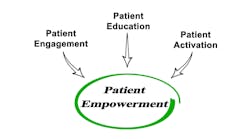According to new UCLA research, Facebook and other social networking technologies could serve as effective tools for preventing HIV infection among at-risk groups.
In a study published in the February issue of the peer-reviewed journal Sexually Transmitted Diseases, researchers found that African American and Latino men who have sex with men voluntarily used health-related Facebook groups, which were created by the study's investigators, to discuss such things as HIV knowledge, stigma and prevention and ultimately to request at-home HIV testing kits. The study also demonstrated that social networking can be a useful tool for collecting and analyzing data.
"Researchers, policymakers and public health professionals are hoping that social media can be used as a tool for improving health research and solving health and HIV prevention–related issues," principal investigator Sean Young, assistant professor of family medicine at the David Geffen School of Medicine at UCLA, said in a statement. "This study helps direct us toward that goal by suggesting that participants will use social media to learn about HIV prevention and that those who talk about HIV prevention over social networking groups are not just talking about it — they are acting on their words by getting an HIV test."
The researchers recruited African American and Latino men who have sex with men, either through banner ads placed on social networking sites such as Facebook and MySpace, through a Facebook fan page with study information, through banner ads and posts on Craigslist, and from venues such as bars, schools, gyms and community organizations in Los Angeles. They also recruited study subjects from other population groups to add diversity to the study group.
African American men who have sex with men have been shown to have a disproportionately high risk of becoming infected with HIV, and Latino men are also at high risk, the researchers said.
In total, 112 participants were recruited, nearly 90 percent of whom were African American or Latino, for the 12-week intervention and one-year follow-up after. The average age was 31. Participants were randomly assigned on Facebook to either a general health group or a secret HIV-prevention group — one that could not be accessed or searched for by non-group members.
The researchers found that participants in the HIV-prevention group freely discussed HIV-related topics such as prevention, testing, knowledge, stigma and advocacy. Those over the age of 31 were more likely to discuss prevention, testing, stigma and advocacy topics, while younger members were more interested in HIV knowledge–related discussions. In addition, participants who posted about prevention and testing had over 11 times the odds of requesting an HIV testing kit than participants who did not discuss those topics.

